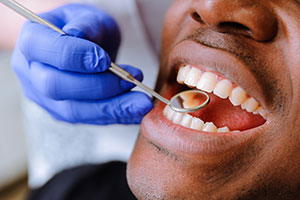
Bone Grafting
Missing teeth can cause a lot of problems, but one of the biggest is loss of bone mass. Infection and deterioration from the empty socket can lead to an almost instant regression in bone tissue. The results can be severe, with as much as a 25% of bone deterioration within just the first year after a tooth has been lost.
What happens when you lose bone mass?
The loss of bone in the jaw can impact the health of your mouth in several ways. In some cases, the loss of your bone and gum tissue can limit your tooth replacement options. Things like dental implants require a significant amount of healthy bone tissue to be successfully placed. The loss of one or more teeth and the loss of bone along with it can also alter the structure of your face and lead to the appearance of premature aging.
How does bone grafting work?
The good news is there are solutions to prevent the loss of bone tissue. We offer bone grafting as a means of stimulating the growth of new bone tissue. Bone grafting can help to avoid the continued loss of bone tissue and can help your jaw support dental implants.
How does bone grafting work?
There are a number of options to consider for the bone grafting process. The materials themselves can be made of either biological or synthetic material. We will determine which option is better for you. Any tissue used from a biological source will be sterilized so that it can be grafted safely.
The grafted material behaves as a base for existing healthy bone tissue to attach itself to. The new healthy bone growth will ultimately replace the grafted materials. Eventually, the grafted materials will be absorbed into the body, leaving new healthy bone tissue in its place.
You should experience little to no pain after the grafting procedure. At most, you may feel a bit of mild discomfort that can be readily managed with over-the-counter pain medication.
If we identify that you are losing bone mass in your jaw or if you need more bone to support a dental implant, bone grafting may be for you. We will evaluate your dental health and situation to determine if you are a good candidate for bone grafting. If you are suffering from bone deterioration, or want to learn more about this procedure, contact us online or give us a call at 614-870-3337.